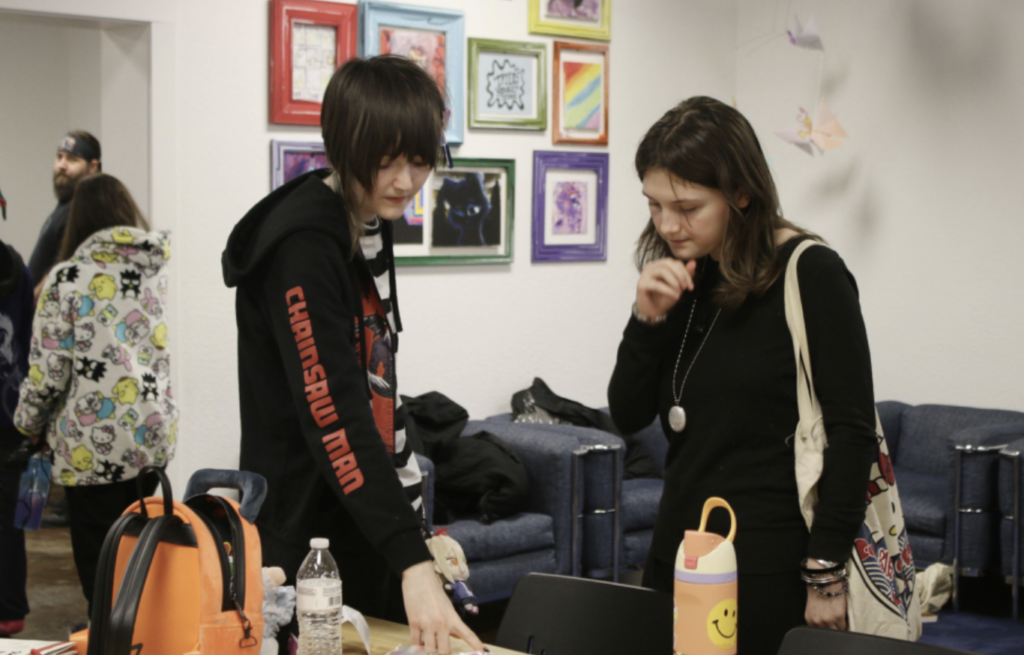Beyond Streetwalking

Last winter, as Sandy Brown spent the holidays with her family in San Antonio, Texas, she realized her Citydog dog-walking and pet-sitting business in Kansas City had absorbed too much of her life. She fretted about the dog-visitation schedule she’d left for her employees. She regretted having to turn away a few dogs because the staff was fully occupied. She was supposed to be enjoying Christmas with family. Instead, she worried about dogs.
Something has to change, she thought. The inability to travel, date, hang out with friends or even relax at home began to bother her for the first time since she went to the dogs with a new business in July 1999.
So, naturally, the 26-year-old decided to expand Citydog.
Her goal: consolidate the business into a doggie day care downtown or in the City Market area. Brown knows that such a step probably won’t ease her busy schedule. “I don’t know that it’s necessarily going to allow me more time for myself, but it will structure my time,” she says.
With Manhattan’s plush NYC Dog Spa and Hotel serving as her model, Brown wants to open an attractive and inviting day care that both dogs and owners can enjoy. Similar day cares, which allow dogs to roam free instead of cooping them in kennels, have spread across the country as working dog-lovers have fallen for their stylish preschool-like surroundings.
“I want the day care to look and feel like a retail space,” Brown says, “so it just feels nicer and it feels more comfortable, and when people walk in they can see this isn’t just a place where the dogs run around and the floors are cement because that’s what’s practical. There are still things you can do to make it feel comfortable for people to be in the space and also practical so that when the dogs pee and do whatever they’re going to do, it’s easy to clean up.”
The first “do” to clean up, however, will be Kansas City’s zoning laws, which aren’t quite up to speed with the trend of urban day cares for animals. Right now, Brown’s business plan would not fall under either the grooming or kennel categories, which means the city council would have to write and pass a designation.
Syrus Kalantar, supervisor of the city’s zoning permits, believes Brown’s request will be more a matter of time than trouble.
“If it doesn’t have much opposition, which I don’t think something like that would, it might only take two or three months,” Kalantar says. “Now, if there’s opposition, it could take much longer.”
Still, even three months is a relatively long time for a business that has come so far over the past 21 months.
Citydog was born when Brown’s love for dogs and her boredom with everyday jobs finally caused her to take an entrepreneurial leap of faith. With zero customers at first, she opted to forgo the day care idea and establish a dog-walking and pet-sitting service. For six months, she worked at part-time jobs as she built her four-legged customer base.
Then, in February 2000, Scout entered her life. The timid bull mastiff required visitations five days a week, and the resulting earnings allowed Brown to quit her last part-time job and officially become her own boss.
“It was a really big moment,” she says, “but it was scary also. Like, ‘I am my only income now.'”
Soon, Brown hired a couple of part-time employees, and the three split the workload, visiting their tail-wagging clientele in upscale apartments and houses from Union Hill to Brookside. The system has meant long days for Brown (often from 8 a.m. to 10 p.m.), but she shows no signs of a lagging commitment as she still greets each dog with genuine enthusiasm.
Part of Brown’s flair is that she and her employees cater to the owners just as much as the dogs. After every walk, Brown and her employees leave notes behind, written from the perspective of the dog, detailing the day’s events. For a speedy pug named Gus, that means a description of the acorns and sticks he chomped along the walk.
Brown is looking for the right space to open her day care, which she hopes eventually will offer other services, such as grooming and training (for dogs), coffee (for humans) and clothing sales (for both).
But most important, Brown is thinking about how to extend the personal touches that have made Citydog a word-of-mouth success and allowed her to ditch the confinement of a 9-to-5 life.
“I think the most important thing is to make customers feel like they’re part of a community,” she says. “If they have nothing else in common, they have a major love for dogs. I think it’s easier to create a community when you actually have a physical space, a retail space, and the customers actually know where to find Citydog.”




